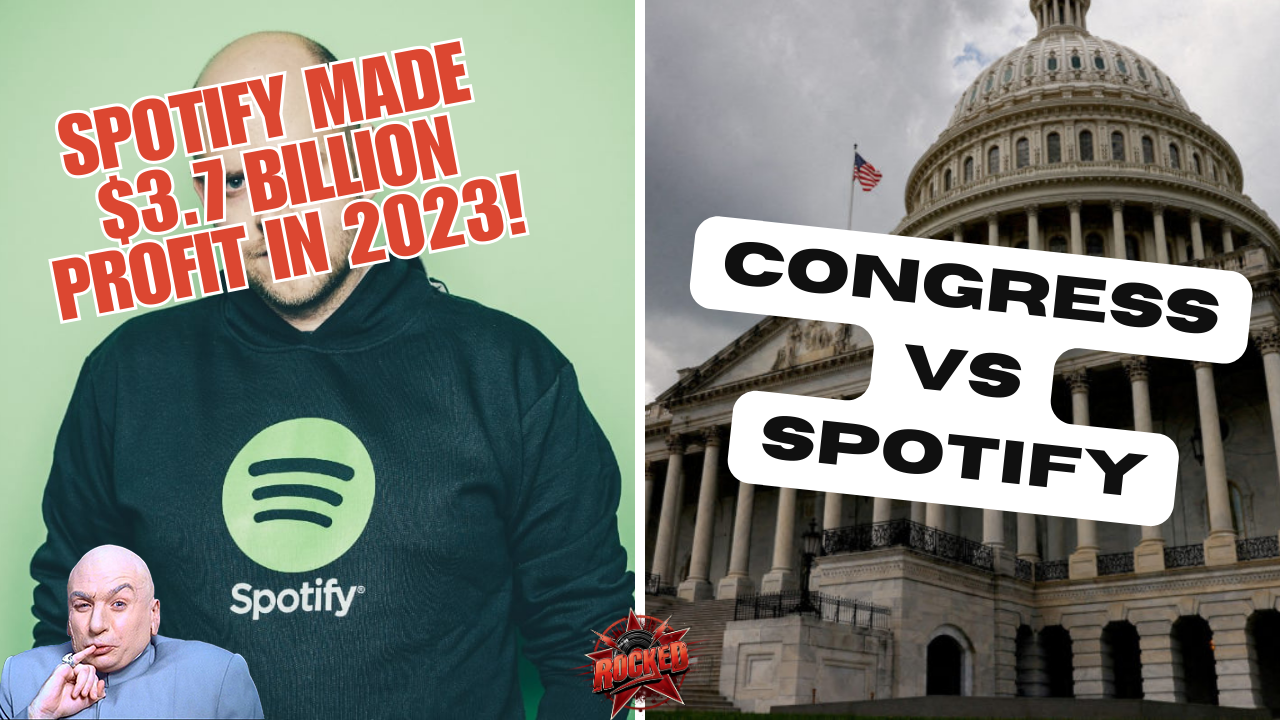
Members of Congress have presented the Living Wage for Musicians Act to help combat low streaming payouts from Spotify, who made $3.7 Billion profit in 2023. Congress VS Spotify: A Bill To Help Musicians Survive.
“A new bill designed to increase streaming payouts for artists was introduced in the U.S. House of Representatives on Wednesday (Mar. 6). Titled the Living Wage for Musicians Act, the legislation proposes the establishment of a new royalty fund that would pay artists directly, bypassing labels altogether. Introduced by Reps. Rashida Tlaib (D-Mich.) and Jamaal Bowman (D-N.Y.), the bill aims to boost artists’ streaming royalty from fractions of a penny up to one penny per stream by way of the new fund. It proposes to fund the additional royalty payments, in part, by mandating the addition of a fee to every streaming subscription equal to 50% of the subscription price — an amount that would be set anywhere between $4 and $10. The bill would also establish a royalty cap for tracks that generate at least 1 million streams per month, with royalties generated by the tracks beyond that number to be divided among all artists.” (Steve Knopper, Billboard)
“A new bill designed to increase streaming payouts for artists was introduced in the U.S. House of Representatives on Wednesday (Mar. 6). Titled the Living Wage for Musicians Act, the legislation proposes the establishment of a new royalty fund that would pay artists directly, bypassing labels altogether. Introduced by Reps. Rashida Tlaib (D-Mich.) and Jamaal Bowman (D-N.Y.), the bill aims to boost artists’ streaming royalty from fractions of a penny up to one penny per stream by way of the new fund. It proposes to fund the additional royalty payments, in part, by mandating the addition of a fee to every streaming subscription equal to 50% of the subscription price — an amount that would be set anywhere between $4 and $10. The bill would also establish a royalty cap for tracks that generate at least 1 million streams per month, with royalties generated by the tracks beyond that number to be divided among all artists.” (Steve Knopper, Billboard)“The Living Wage for Musicians Act would tax providers’ non-subscription revenues and add a small fee to the price of music streaming subscriptions. DSPs like Spotify offering interactive music streaming services would pass their taxed revenues and royalties to a non-profit collection and distribution fund, that would in turn pay artists in proportion to their monthly streams. The bill includes a maximum payout per track, per month, in order to generate more sustainable income for a broader and more diverse set of artists beyond the world’s most popular performers. […] By creating a fund that directly compensates recording artists and musicians, the bill will allow vastly more artists to achieve a living wage from music, enabling them to pay rent, raise a family, buy a home, and invest in their future.” (Derrick Rossignol, UPROXX)





